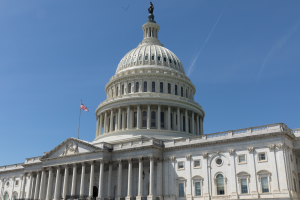
Tues., March 30, 2:00 to 3:30 p.m. Eastern time: Virtual National Congressional Briefing with Amory Lovins of Stanford University and RMI, as well as other experts.
With Indian Point closing on April 30, it is really important to understand how that fits into national nuclear waste policy for managing its 2000 tons of highly radioactive nuclear waste, and plans for managing the waste generated by more than 100 other nuclear reactors as we educate Congress on this important topic. Science matters, but the Nuclear Regulatory Commission is an industry-captured body that repeatedly ignored it is own regulations and granted waivers and exemptions that put nuclear industry profit over public health and safety, leaving Congress to provide the necessary oversight.
Toward an Evidence-Based Nuclear Energy Policy:
What Congress Needs to Know About Nuclear Decommissioning,
Radioactive Waste, and Nuclear Energy as a Climate Strateg
Please RSVP to receive register and receive updates: www.eesi.org/033021nuclear#rsvp
Live webcast will be streamed at: www.eesi.org/livecast
The Environmental and Energy Study Institute (EESI) invites you to join an online briefing on nuclear energy issues, including the current economics of the U.S. nuclear power industry, how to approach decommissioning as more civilian reactors shut down, and what to do with their high-level radioactive waste.
As U.S. nuclear plants age out or become unprofitable, the growing number of shuttered reactors has spawned a new decommissioning business model which promises to remediate sites quickly, but also raises new questions about safety, financial assurance, cleanup standards, and waste disposition. Decommissioning companies want to ship highly radioactive spent fuel through 75% of Congressional districts to their proposed consolidated interim storage facilities (CISFs) in New Mexico and Texas, which overburdened residents there oppose. Congress will likely be asked to change basic provisions of the Nuclear Waste Policy Act this year to enable CISFs. Meanwhile, the Nuclear Regulatory Commission is proposing to lengthen the duration of license extensions for operating nuclear plants, potentially allowing them to keep running and generating radioactive waste for more than 80 years.
To help inform major decisions on nuclear energy policy facing Congress, the briefing will point out gaps in current research and data, federal policy, and regulatory oversight, and what can be done to fill them. It will examine how some other countries safeguard their radioactive waste, and offer practical recommendations to help make pending U.S. policy and regulatory decisions about nuclear energy more evidence-based, and better aligned with science and environmental justice. It will be a moderated discussion with leading experts and advocates, including:
- Tim Judson, Executive Director, Nuclear Information and Resource Service
- Leona Morgan, Co-founder, Nuclear Issues Study Group; Diné or “Navajo” community organizer and leading advocate for communities in New Mexico impacted by CISF and uranium mining
- Paul Gunter, Director of the Reactor Oversight Project, Beyond Nuclear
- Ben Wealer, Research Associate in Nuclear Power Economics, Berlin Institute of Technology; Guest Researcher, DIW Berlin (German Institute for Economic Research).
- Amory Lovins, Adjunct Professor of Civil and Environmental Engineering, Stanford University — on why nuclear power is NOT a viable climate solution.
This briefing is sponsored by Hudson River Sloop Clearwater,
with support from members of the National Decommissioning Working Group and others.This event is free and open to the public.
For more information, contact Amaury Laporte at alaporte@eesi.org or (202) 662-1884.
